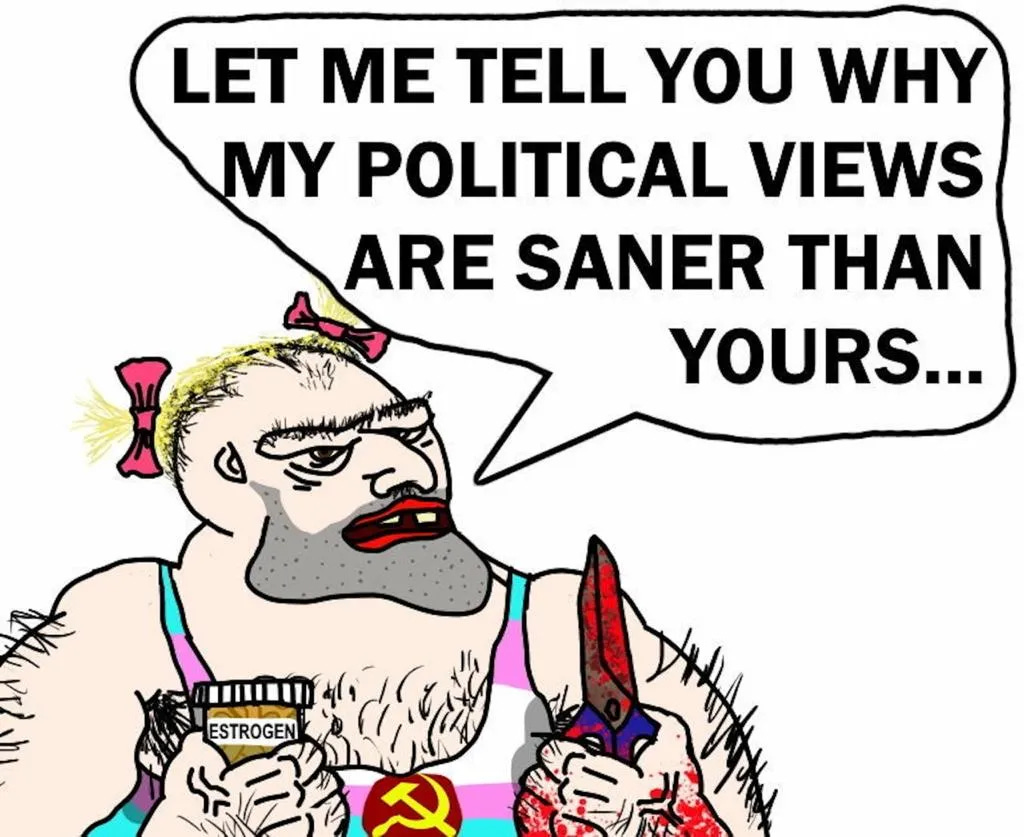‘Oh witches, poverty, hate - I have confided my treasures to you!’
Rimbaud, A Season in Hell
Hate is as natural a human emotion as love, anger, fear, lust, joy or envy. Whether or not it's an admirable or desirable one is irrelevant. It can only be eliminated (in fact, submerged) by fundamentally restricting our right to be human.
For centuries, English law correctly concerned itself only with the illegality of making specific threats or incitements of physical violence. Moving from that to policing general ‘hate’ expression is a disaster, since what counts as ‘hateful’ in general expression is subjective and not something that a free society should define. It allows ‘hate crime’ to be alleged against others for disagreeing with what you say are your core (‘protected’) beliefs, especially about your own identity.
Canada's Philip K Dick laws pre-empting online hatred can be linked with the overall woke attempt to recreate humanity, especially the idea that asserting fundamental biological identity is hateful, whereas recognising someone's self-proclaimed gender identity is a legal requirement.
Everywhere we see new laws trying to redefine what makes us human. On gender, global warming, race, immigration, the approach is identical. Discussion is allowed within undefined subjective limits, but opposition is made synonymous with hatred.
Why wouldn't people hate this stance? It's likely the proponents of tyrannical legislation know that response is inevitable. As many have argued, they need to prevent debate because they know their position is utterly indefensible. Small wonder they draw that conclusion. But they're also constantly seeking to provoke, to flush out the largely fictitious 'far right' haters they claim threaten society.
It's beyond ironic that, if one seeks the best examples of online hatred, you should read articles and comments posted by 'progressives'. Anyone who's discussed Brexit, gender identity or lockdown knows their pitiless fury can be astounding. It's quite the norm for this to take the form of wishing violence or even death on those who disagree with them - see the well-known examples by Jo Brand, Philip Pullman and Ian McEwan - on acid throwing at Farage, hanging Brexit voters from lampposts or urging them all to die.
In London, hate-driven marches demanding destruction of Israel are indulged by a police force which tells Jews not to be openly Jewish, for fear of further angering the mob. They've frequently interviewed people for posting online disagreement with gender fluidity.
This maddening hypocrisy is intended to trigger hatred. Progressives know this is both a natural and inevitable response, given how much they hate and how readily they express it. But they want this right only for themselves - say over Trump, Farage or Rowling. It's probably trite to observe that their stance on hate is 'projection', given how saturated in the emotion they are.
All this is perhaps obvious. My position is that - allowing for the the Common Law restrictions on threats and incitement - hate has to be accepted and even occasionally welcomed. Let's be honest! It's produced some of the greatest art and without it, we'd probably have had almost no human progress. On its own, hatred is a limiting, negative and exhausting thing. But as a component of other drives, it's often essential.
Warfare itself, whilst cruelly destructive, has always been a huge catalyst for human invention: would we have had antibiotics, jet engines or nuclear power without WW2?
As for art, some of the greatest writers were enormous haters. Obvious first-rankers are Shakespeare, Dickens, Dostoevsky, Rimbaud, Celine. Not just hate-driven of course. And what about Caravaggio? He produced his greatest paintings whilst literally on the run for murder. Shakespeare's most memorable characters are usually driven by it - Macbeth, Iago and Edmund being superb examples.
And film? The three best 1970s British films (all 1971) are Get Carter, A Clockwork Orange and Straw Dogs - all explorations of hate. Not just of that, but without it they'd be nothing. They're not celebrations of the emotion, but any honest viewer should admit that the nihilistic violence is enjoyable and artistically essential. Probably the greatest film of the decade - Taxi Driver - is about nothing else.
Teaching English at A-level, I found both Easton Ellis' American Psycho and Celine's Journey to the End of the Night worked superbly, as novels. Both are frenzied and hate-filled, but (in differing ways) use this to create great pieces of literature. It's true that the former provoked parental complaints, but I found explaining the serious purpose (and Ellis' use of factual accounts) satisfied them.
No doubt my position may well provoke hatred! As long as that's genuine and not fake-outrage, I'd welcome it.



Only problem is the fact that particular emotion wears a person's body and mind out faster than any other. To be indulged in and applied sparingly, briefly, and only in dire necessity. Chronic state harmful, acute state sometimes useful.